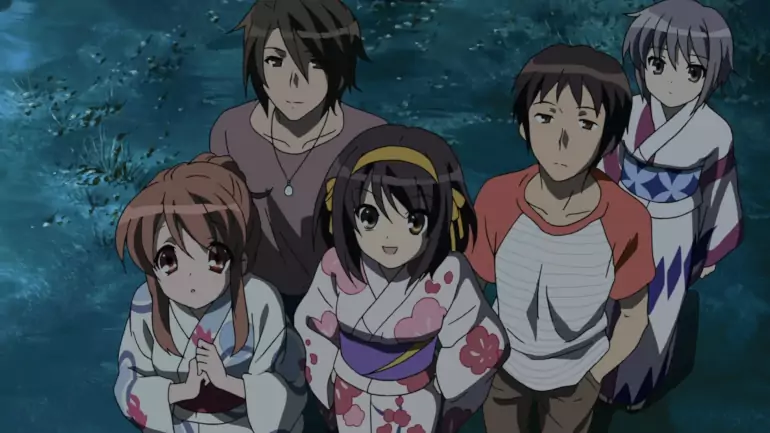Obon Festival: A Glimpse into Japanese Culture Through Anime

Obon, translating to the "Festival of the Dead," stands as a deeply ingrained and representative tradition in Japanese culture.
While in Venezuela, we observe this day on November 2nd, dedicated to visiting cemeteries, in Japan, the date varies by region and is commonly celebrated from July 13th to 16th.
According to Japanese belief, the souls of those who passed away in their youth, while unmarried, or victims of accidents, may transform into harmful spirits if not properly attended to during Obon. To pacify these souls, a special meal is prepared outside the home, carefully avoiding any mixture with offerings intended for ancestors. This ritual responsibility often falls upon girls under the age of 15, who view this practice as culinary preparation for their future marriages. This beautiful rite not only symbolizes the connection between generations but also underscores the significance of honoring and remembering loved ones in a profound and meaningful way.
On the first day of Obon, a warm welcome is extended to the spirits of ancestors through a bonfire in front of the house and small pagodas inside, facilitating their arrival. In front of the Ihai or the household altar, an offering is placed, comprising flowers, seasonal fruits, vegetables, and food. Vegetables like cucumber and eggplant are adorned with four wheat stalks shaped like feet, symbolizing the horse and ox, considered means of transportation.
This profound connection between the spiritual and earthly realms manifests in the deep-seated Japanese belief that the souls of ancestors remain close to home, acting as vigilant guardians watching over the family. This perception differs from the Western notion of a distant paradise, as in the Japanese worldview, the emotional and spiritual bond with loved ones transcends the boundaries between life and death.
The philosophy of the reincarnation of ancestors into new family members reflects the concept of an eternal cycle of existence, where generations intertwine in a continuous fabric. During Obon, this understanding becomes more palpable as grandparents are welcomed with reverence and gratitude, seen as souls that still linger. The offering of meticulously prepared fresh fish serves as a symbolic gesture of appreciation, symbolizing gratitude for the continuity of life and the enduring connection with those who preceded us.
Thus, Obon stands as a vibrant testament to the rich spirituality of Japan, where the presence of ancestors is celebrated with love, respect, and the tangible belief that their influence continues to reverberate in every corner of the home and in the heart of the family.
This poignant farewell signifies the culmination of Obon, where the bonfire's flame transforms into a symbolic beacon, guiding the spirits of ancestors back to their spiritual realm. Deeply ingrained in Japanese culture is the belief that fire not only illuminates but also purifies, liberating the spirit from any negative energy accumulated during its temporary sojourn.
The preference for a bonfire over candles underscores the strength and intensity of this farewell ritual. The dance of the flames, illuminating the night's darkness, symbolizes renewal and the soul's release into its subsequent spiritual journey.
Furthermore, the ceremony gains added depth with another symbolic farewell: a small boat carrying a special offering. Allowing it to gently glide down a nearby river until reaching the vast sea signifies the spirit's transition to a realm beyond the tangible, where it is emancipated and merges with the vastness of the ocean. This signifies the conclusion of Obon with reverence and respect for the ancestors. This gesture evolves into a poetic farewell, constructing a bridge between the earthly and spiritual realms, paying homage to the memory of those who have left an enduring imprint on family history.
Si quieres conocer otros artículos parecidos a Obon Festival: A Glimpse into Japanese Culture Through Anime puedes visitar la categoría Nippon.

Leave a Reply